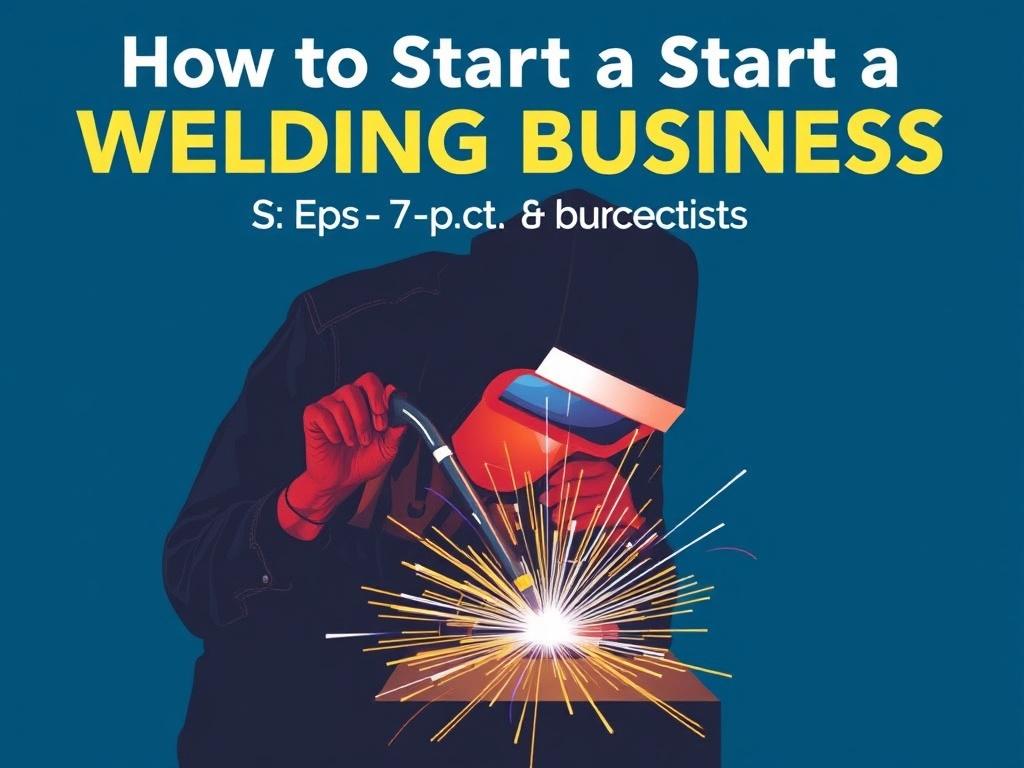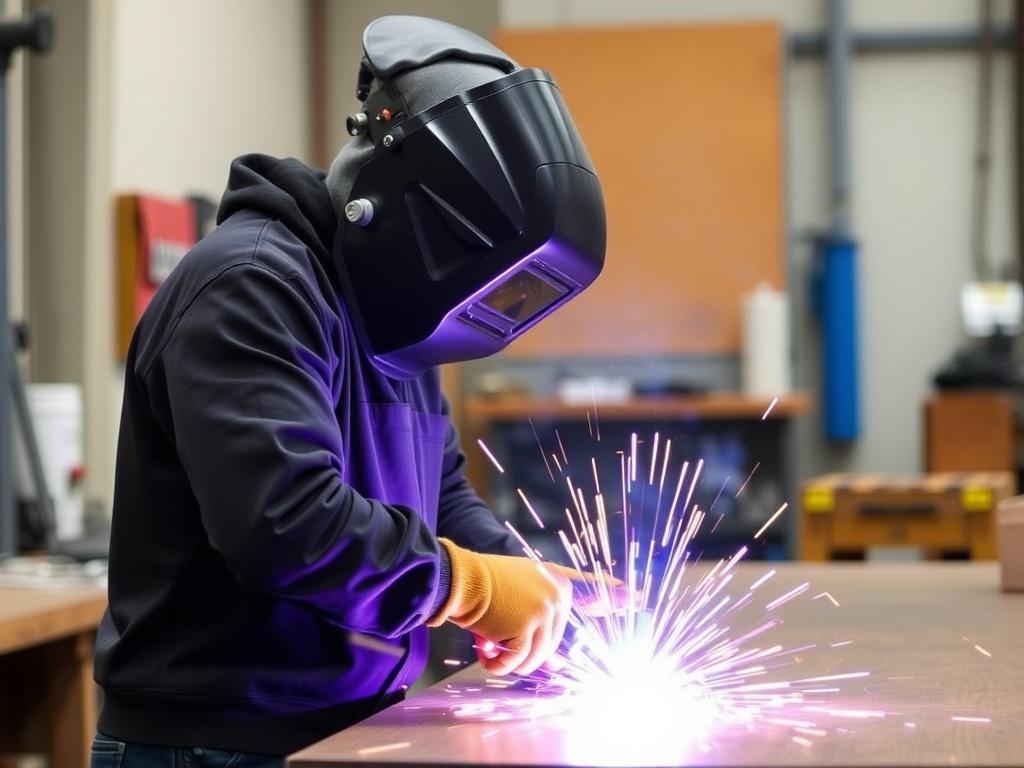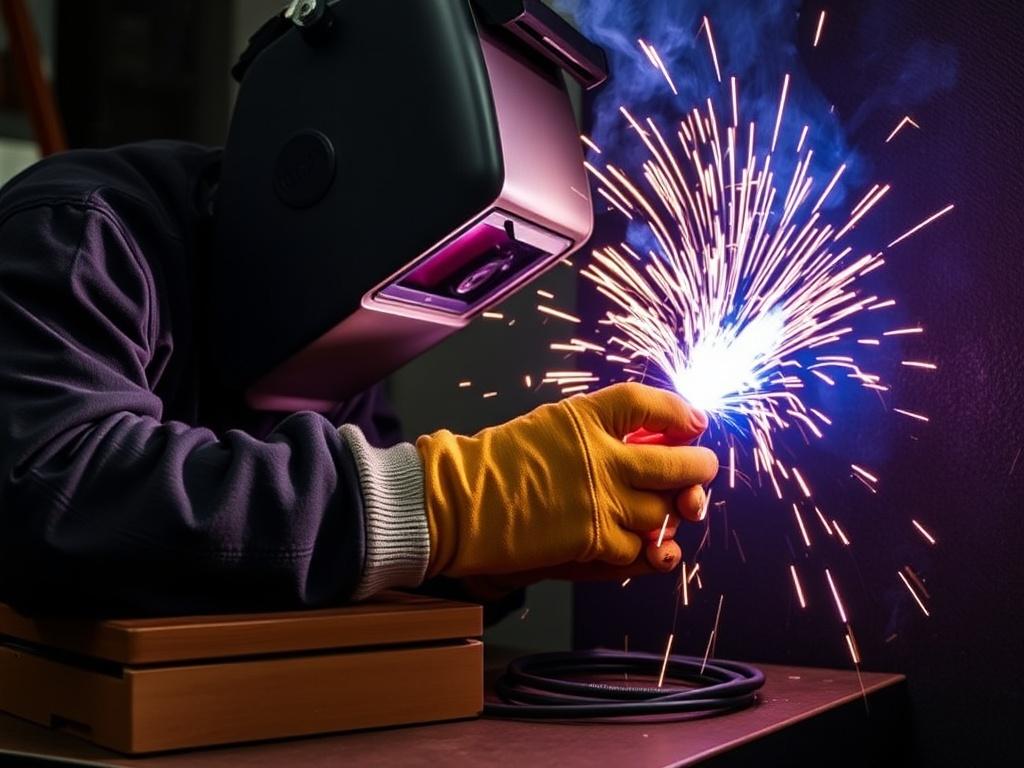
SQLITE NOT INSTALLED
Starting a welding business can be an exciting and lucrative venture for anyone passionate about metalwork and craftsmanship. Whether you’re a seasoned welder or someone interested in combining technical skills with entrepreneurship, understanding how to start a welding business is crucial to ensure success in this competitive industry. This comprehensive step-by-step guide will walk you through every aspect of launching and growing your welding business, from initial planning all the way to managing operations and attracting loyal customers.
Understanding the Welding Industry
Before diving into the practical steps of how to start a welding business, it’s important to first understand the industry landscape. Welding is an essential service in many sectors, including construction, manufacturing, automotive repair, pipeline installation, and artistic metal fabrication. Demand is steady because welded metal parts are everywhere—from buildings and bridges to ornamental gates and furniture.
However, the welding industry has its own set of challenges that can affect new business owners. Safety regulations, industry certifications, and specialized equipment requirements all need to be considered up front. Moreover, competition can be fierce, with numerous small businesses and independent welders operating in local markets. This makes it essential to establish a clear business plan and identify your niche.
Types of Welding Businesses to Consider
Welding businesses come in various forms, depending on the services offered and the target market. Here are a few types you might consider:
- Mobile Welding Services: Bringing welding services directly to a client’s location, such as farms, construction sites, or homes.
- Custom Fabrication Shops: Creating bespoke metal products like gates, railings, furniture, or art pieces.
- Repair and Maintenance Welding: Focusing on repairing machinery, vehicles, or structural components.
- Industrial Welding: Working with large-scale infrastructure or manufacturing clients.
- Specialty Welding: Niche services such as underwater welding or aerospace welding.
Deciding on a specialty early on can help you focus your marketing efforts and develop expertise that attracts high-value clients.
Step 1: Develop Your Business Plan

A solid business plan is the foundation for how to start a welding business successfully. It helps you map out your goals, understand your costs, outline your marketing strategy, and project profits. Don’t overlook this step—it can mean the difference between thriving and struggling.
What Should Be Included in Your Welding Business Plan?
Here is an organized checklist of key sections to include in your business plan:
| Section | Description |
|---|---|
| Executive Summary | A brief overview of your business idea and objectives. |
| Company Description | Details about your welding business structure, ownership, and unique value proposition. |
| Market Analysis | Research on the welding industry in your area, target customers, and competitors. |
| Organization and Management | Who will run the business? Including roles, responsibilities, and staffing plans. |
| Services Offered | Specific welding services you plan to offer and any specialties. |
| Marketing and Sales Strategies | How you will attract customers and promote your welding business. |
| Funding Request | Details about money needed to get started if you’re seeking investors or loans. |
| Financial Projections | Estimated startup costs, sales forecasts, cash flow statements, and break-even analysis. |
Taking the time to complete this section thoroughly can highlight potential challenges and sharpen your focus.
Step 2: Secure Financing for Your Welding Business
Starting a welding business requires upfront capital to purchase equipment, rent workspace, buy supplies, and cover initial operating expenses. Understanding how to secure financing is an essential step to get your business off the ground.
Your startup costs will vary depending on your business model. For instance, a mobile welder might need a reliable truck and portable welding machines, while a fabrication shop will require a dedicated facility and more extensive equipment.
Common Startup Costs for Welding Businesses
- Welding machines and accessories (MIG, TIG, Stick welders)
- Safety gear and protective equipment
- Metal stock and welding consumables
- Workshop rent or vehicle purchase for mobile service
- Business licenses and insurance
- Marketing and website development
If you don’t have the capital saved up, there are several options for financing your welding business:
- Small Business Loans: Often available through banks, credit unions, or government programs such as the SBA.
- Equipment Financing: Consider leasing or financing plans offered by equipment suppliers.
- Personal Savings or Investments: Some entrepreneurs bootstrap their startup with personal funds.
- Friends and Family Loans or Investments: Informal funding from people close to you.
- Crowdfunding or Investors: For specialized or larger-scale welding businesses, you might attract investors.
Carefully assess your budget and understand what types of loans or financing make the most sense for your situation to help you launch successfully.
Step 3: Obtain Necessary Licenses, Permits, and Certifications

One critical step often overlooked when considering how to start a welding business is ensuring you comply with all legal and regulatory requirements. These requirements vary by location but generally include several types of licenses and permits.
Business Licenses and Registration
At a minimum, you will need to register your business with the appropriate government authorities. This usually means:
- Registering your business name
- Choosing a legal business structure (LLC, sole proprietorship, corporation)
- Obtaining a business license or permit from your city or county
Each of these steps ensures your business is operating legally and can help protect personal assets and limit liability.
Welding Certifications
While you may already be an experienced welder, possessing industry-recognized welding certifications can set you apart in the market. Certifications ensure customers and partners you meet safety and quality standards.
Some of the most respected welding certifications include:
- American Welding Society (AWS) Certified Welder
- Certified Welding Inspector (CWI)
- Specialty certifications such as underwater welding or pressure vessel welding
Depending on your specialty, some clients may require you to maintain certain professional certifications.
Health and Safety Permits
Since welding can be dangerous without proper safety measures, you may also need to comply with local occupational health and safety regulations. This could mean obtaining permits, following OSHA guidelines, and implementing workplace safety programs. Having appropriate workers’ compensation insurance is also crucial.
Step 4: Purchase the Right Equipment

Choosing the best welding equipment is vital to produce high-quality work and build a reputable welding business. The type of equipment you need depends on the kind of welding services you plan to offer and your business model, whether stationary shop-based or mobile.
Essential Welding Equipment for Beginners
| Equipment | Description | Recommended For |
|---|---|---|
| Welding Machines | Machines such as MIG (Metal Inert Gas), TIG (Tungsten Inert Gas), or Stick welders, depending on your specialization. | Every welding business; choose based on your niche. |
| Protective Gear | Welding helmets, gloves, jackets, and respiratory protection to ensure safety. | All welders. |
| Clamps and Fixtures | Tools that hold metal pieces securely during welding to ensure precision. | Fabrication and repair shops. |
| Cutting Tools | Plasma cutters or oxy-acetylene torches for metal preparation. | Fabricators and repair services. |
| Measuring Equipment | Squares, tape measures, and gauges for accuracy. | All welders for quality control. |
| Ventilation Systems | Proper ventilation to remove fumes and maintain air quality. | Workshop setups. |
Investing in high-quality equipment may initially be costly but will pay off with better durability, improved performance, and safer work environments.
Step 5: Set Up Your Workspace
The perfect workspace depends largely on whether you’re running a mobile welding business or operating out of a fixed location. Regardless, your workspace must be safe, efficient, and compliant with local regulations.
Considerations for a Welding Workshop
- Space: You need enough room for equipment, metal stock, and moving large materials safely.
- Ventilation: Essential for removing toxic fumes and ensuring air quality.
- Lighting: Good lighting supports detailed and precise work.
- Electricity: Sufficient power supply to operate welding machines and tools.
- Storage: Organized storage for materials, tools, and safety gear.
- Safety Measures: Fire extinguishers, first-aid kits, and clear exit paths.
For mobile welders, the workspace is typically a truck or van outfitted with welding machines and tools, so functionality and portability are key.
Step 6: Develop a Marketing Strategy to Attract Customers
Once you have everything set up, the next important question is: how will you get customers? Developing a robust marketing strategy is essential to grow your welding business and build a steady client base.
Effective Marketing Tactics for Welding Businesses
| Marketing Strategy | Description | Benefits |
|---|---|---|
| Local SEO and Website | Create a professional website optimized for search engines and local searches. | Helps customers find you online easily. |
| Social Media Marketing | Showcase your welding projects on platforms like Instagram, Facebook, and LinkedIn. | Engages your community and showcases your skills. |
| Networking | Build relationships with local contractors, businesses, and suppliers. | Leads to referrals and collaborations. |
| Flyers and Local Ads | Distribute printed materials in targeted neighborhoods or trade magazines. | Raises local awareness. |
| Customer Reviews and Testimonials | Encourage satisfied customers to leave feedback online. | Builds credibility and trust. |
Marketing doesn’t have to be overwhelming. Even small efforts can create ripple effects and attract clients. Providing excellent work and customer service is your most effective marketing tool in the long term.
Step 7: Manage Your Welding Business Operations
Running a successful welding business isn’t just about welding—it’s also about good management. Efficient operations keep projects on time, costs controlled, and customers happy.
Key Operational Tips for Welding Business Owners
- Track Your Expenses and Income: Use accounting software to monitor cash flow and budgets.
- Maintain Equipment: Regular maintenance prevents downtime and costly repairs.
- Provide Training: Ensure yourself and any employees stay updated on safety and techniques.
- Schedule Projects Carefully: Manage client expectations and deliver projects on time.
- Stay Compliant: Keep licenses, certifications, and insurance up to date.
Balancing the technical side of welding with proper business management creates a foundation for steady growth and profitability.
Frequently Asked Questions About Starting a Welding Business
How much money do I need to start a welding business?
Startup costs vary widely but typically range from $10,000 to $50,000+. Major expenses include welding equipment, workspace rental or purchase, safety gear, and business registration fees. Creating a detailed budget during your business plan phase helps clarify specific needs.
Do I need welding certifications to start my business?
While not legally required everywhere, obtaining professional welding certifications enhances credibility, meets client requirements, and may open doors in specialized industries.
Can I start a welding business from home?
Starting at home is possible, especially if you plan mobile services or small-scale fabrication. However, check local zoning codes and safety regulations to ensure compliance.
What is the best way to find welding clients?
Utilize a mix of online presence, local networking, referrals, and targeted advertising. Consistently delivering quality work will also generate repeat customers and word-of-mouth referrals.
Conclusion: Your Journey to Welding Business Success
Starting a welding business can be both a rewarding and challenging endeavor, blending skilled craftsmanship with entrepreneurial spirit. By carefully planning your business, securing necessary funding and certifications, selecting the right equipment, and implementing smart marketing strategies, you’ll set yourself up for success.
Remember, every great welding business starts with a spark of passion and careful groundwork. Use this step-by-step guide as your blueprint, remain patient, and stay committed to quality and service excellence. Soon enough, you could be running a welding business that not only meets your financial goals but also brings pride in your work and reputation in your community.
If you’re ready to turn your welding skills into a thriving business, now is the perfect time to take that first confident step forward.
